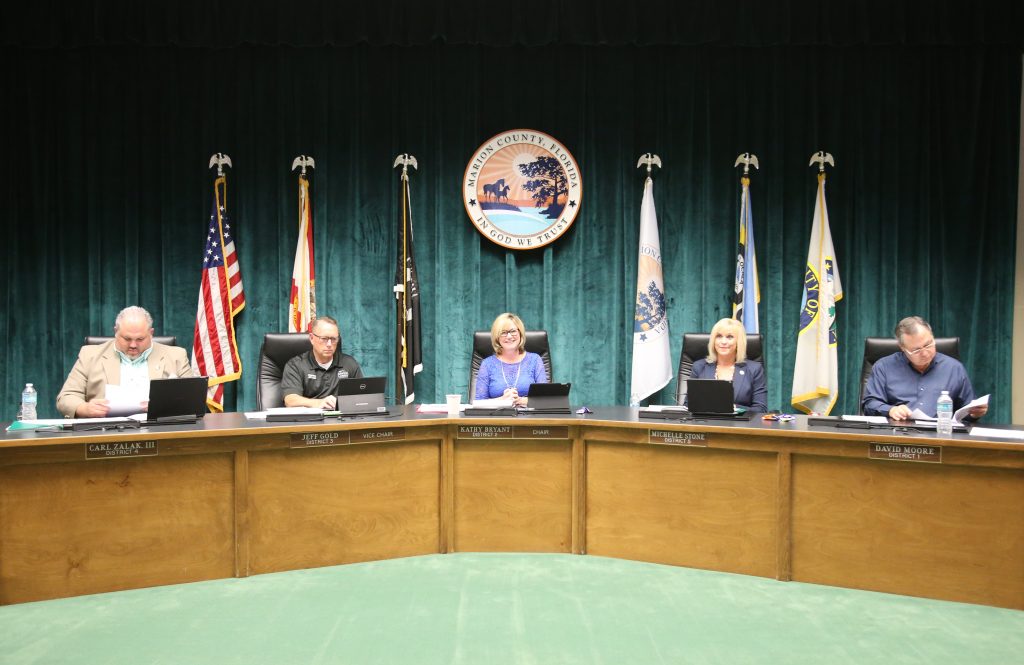County Commission opts for homeowner- friendly policy for home improvements

Marion County’s Building Safety Department will be more hands off for those who like to be hands on around the house.
The County Commission recently revised permitting rules to empower owners of single-family homes to hire contractors to handle small to moderate improvement projects without government oversight.
“It was huge,” Keith Poole, a general contractor in Ocala and board member of the Marion County Building Industry Association, said of the vote, which ended a yearlong discussion about permitting with local contractors.
“The County Commission did a good thing.”
Commissioners decreed that homeowners can hire licensed contractors to complete up to $5,000 worth of projects in a year without obtaining a permit beforehand or an inspection once the work is done.
A caveat applies if a single project costs $2,500 or more. In such cases, homeowners may seek an exemption from permitting by filing an affidavit with the county.
In either case, though, the new local law does away with permitting or inspection requirements so long as homeowners hire licensed contractors, and the work meets the standards of the state building code.
Additionally, do-it-yourselfers are excused from obtaining a permit and have no dollar cap on the amount of work they may do. But, like those who hire contractors, they are required to request the permit waiver if the job exceeds $2,500, and they must declare they will do the work themselves.
State Rep. Stan McClain, who doubles as the builders’ association’s executive director, called the commission’s decision a win for homeowners. It will make smaller projects flow more efficiently and in less time, he said.
But, he added, contractors will also benefit by saving time usually spent pulling permits for small jobs, and the Building Safety Department’s personnel is freed up to focus on other tasks, McClain said.
Commissioners stood firm on requiring permits for several types of projects. Those include:
Installing residential in-ground or above-ground pools;
Demolishing or removing mobile homes;
Converting water heaters from natural gas or propane to electric, or vice versa;
Installing irrigation systems up to the back-flow device;
Performing residential electric work, including repairing outlets, switches, lights or fans up to 25 amps. Replacing an electric water heater with another electric water heater is exempt from this provision;
Installing low voltage wiring and security alarms
Replacing HVAC units of more than $2,500, including materials and labor;
Erecting a pre-fabricated shed larger than 160 square feet;
And any changes in structural beams
Homeowners do spend a significant amount of money dealing with the county on smaller projects now exempted by the ordinance.
At a recent County Commission workshop on next year’s budget, Building Safety Department Director Mike Savage said 44 percent of permitting revenues are derived from such projects.
In 2019, the department reaped $6 million in permitting fees. Which means, that, based on Savage’s figure, the new ordinance, had it been in effect at the time, would have saved homeowners $2.7 million.
In an email, Savage said the 44 percent figure was based on an earlier version of the ordinance. But he acknowledged that fee revenues will decrease under the new law. Staffers are still analyzing its potential effects, he added.
Yet it seems the department can absorb that cost, at last in the short term.
At that workshop, Budget Director Michael Tomich noted the department had banked an “excessive” amount of revenue above its expenses – some $10.5 million as of June 30.
That was enough, Tomich said, to run the department for 2½ years.





